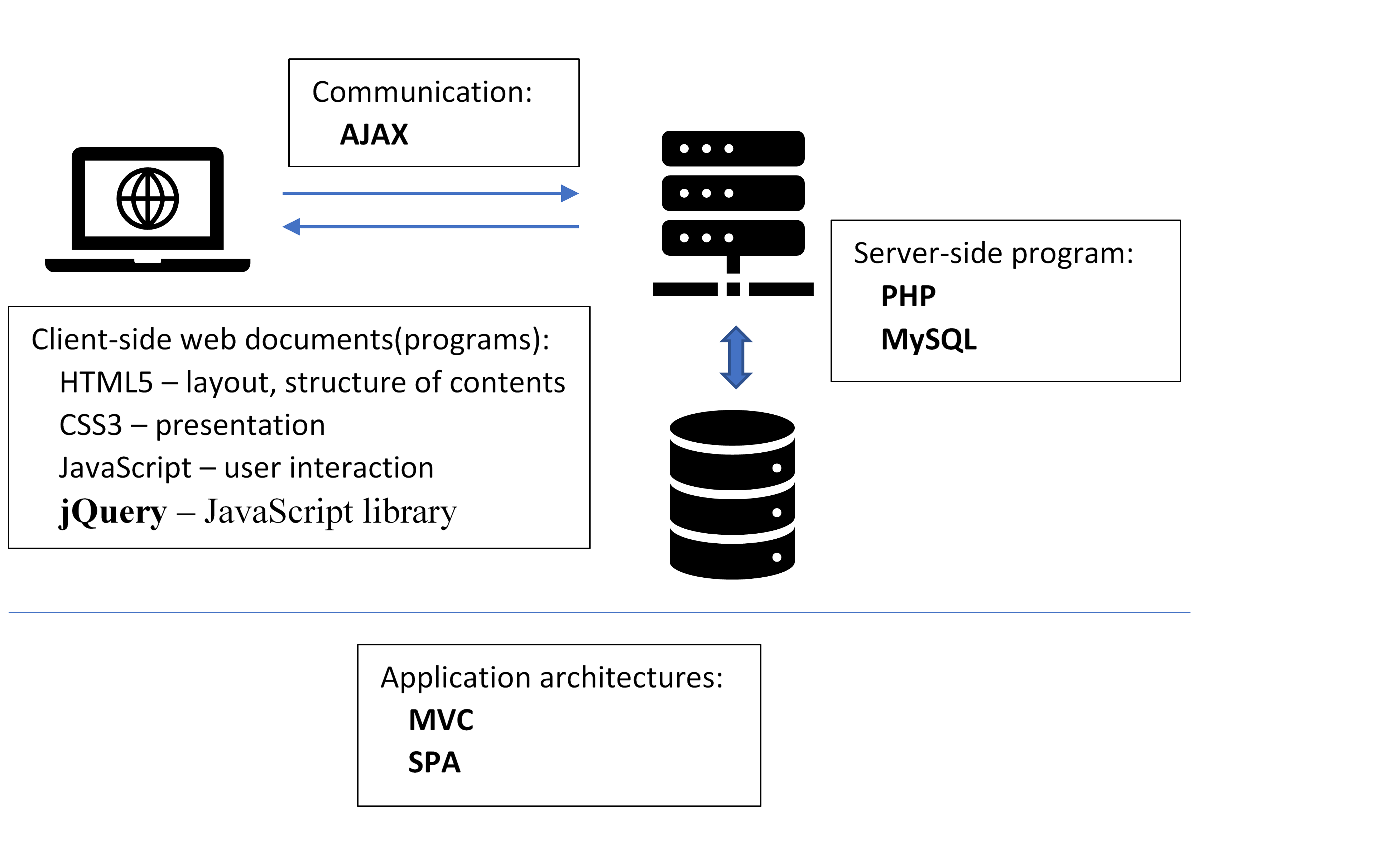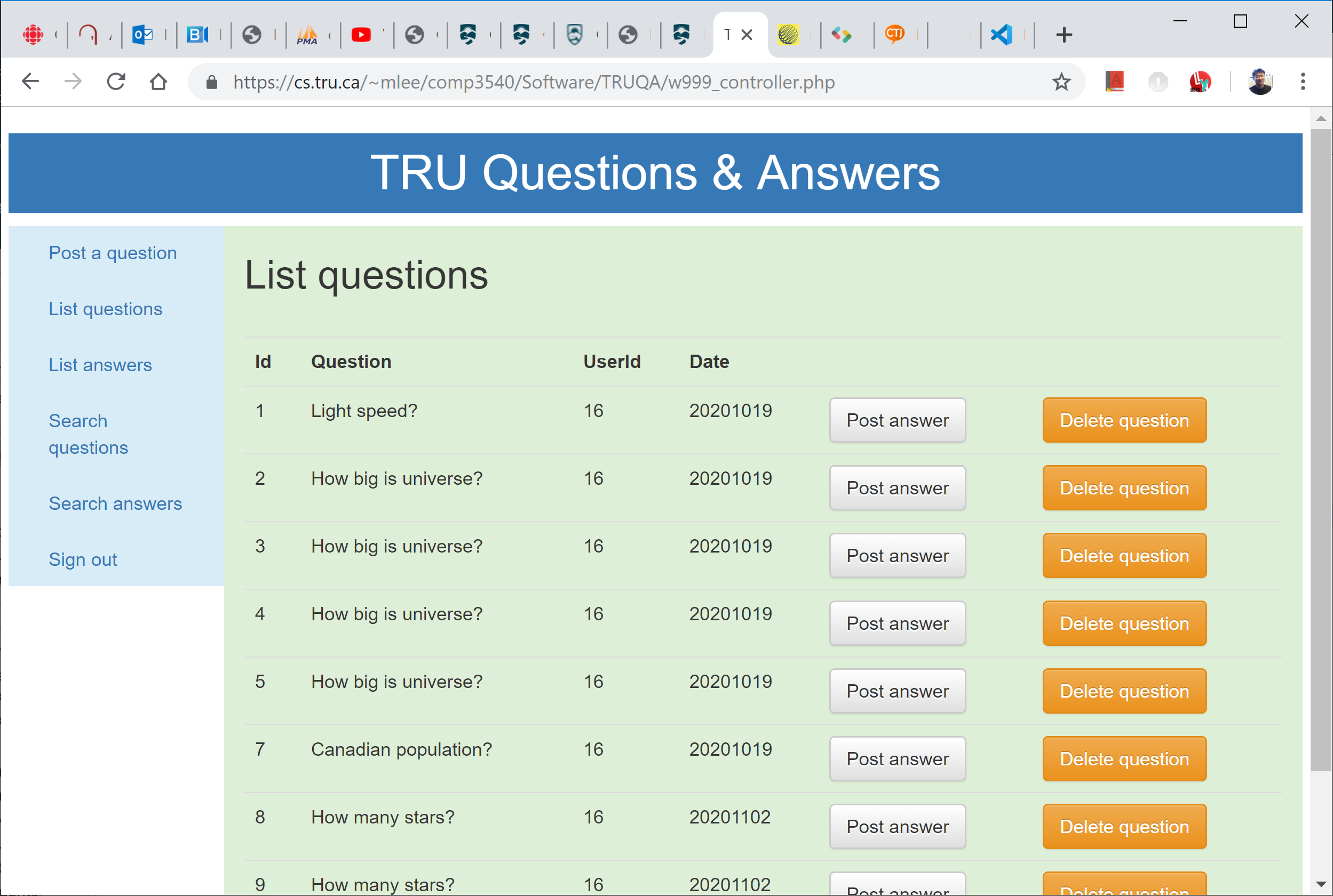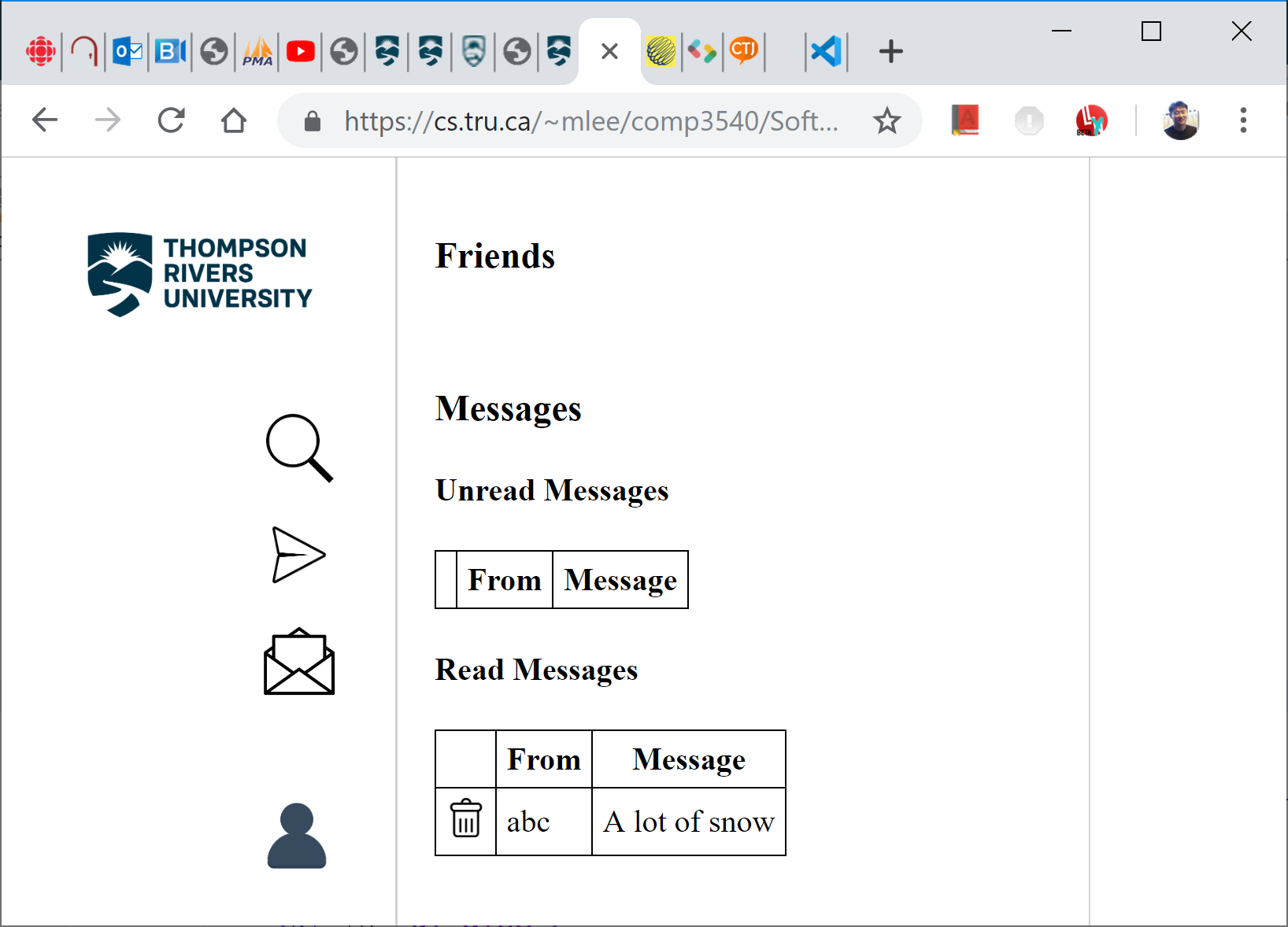1. Introduction to the Course
- Introduction
- Application platforms
- Operating systems - standalone: examples?
- Web browsers and web servers - over the Internet: in this course
- Embeded systems - standalone: examples?
- In COMP 2680, you learned the three web technologies that are used for client-side web applications.

Where are web applications stored?
Which platform is used to run web applicatoins?
- In this course, COMP 3540, you will learn web technologes beyond COMP 2680, which are used to develop full web applications running over client and server systems.

- In this course, you will learn how to develop dynamic web applications
in which server-side databases are accessed and web applications are dynamically generated with the information obtained from databases.
- There are two sides in dynamic web applications - Front-end (client-side) and back-end (server-side).
In this course, you will learn front-end web technologies,
and back-end web technologies, and web application architectures.
- You may learn those front-end and back-end web technologies by studying topics by topics with examples,
as many other classes do.
- However this course uses a different approach.
You will start with a web application that you will analyse in this unit.
The analysis will list what specific how-to topics in front-end and back-end web technologies should be used.
- Those specific how-to topics with some other general topics will be discussed in the following units.
- Learning objectives
- Understand the major areas and challenges of web programming.
- Distinguish web-related technologies.
- Use advanced topics in HTML5, CSS3, JavaScript to solve how-to questions.
- Use front-end frameworks - Bootstrap for responsive design, and jQuery for easy implementation.
- Use a server-side scripting language, PHP, to solve how-to questions.
- Use a relational DBMS, MySQL, to solve how-to questions.
- Use PHP to access a MySQL database.
- Use AJAX to retrieve data from the server without redisplaying the current web page.
- Design and implement
- typical static web pages and interactive web applications - JavaScript and jQuery.
- dynamic creation of web applications using MVC architecture - PHP and MySQL.
- web applications that use asynchronous communication - AJAX and jQuery.
- Single Page Application (SPA).
- secure 3-tier data-driven web applications - security issues.
- ...
- Class projects
- You will learn/practice the topics in this course
while you develop one of the next two web appcliations.
- TRU Questions & Answers

- TRU Messager

- You will also develop your own web application.
- Expectations
- Self-directed learning
- Self-motivated learning
- Evaluation
- Instructor
- How to study VERY well - Is motivation good enough?
- There are many general ideas. Can you suggest some good ideas?
- Some of them are more important. What are they?
- There are two types of habits, winning habits and loosing habits.
- Winning habits are ...
- Loosing habits are ...



